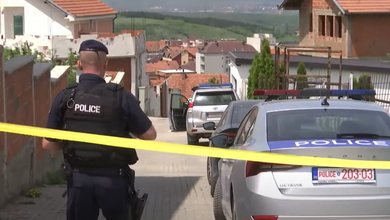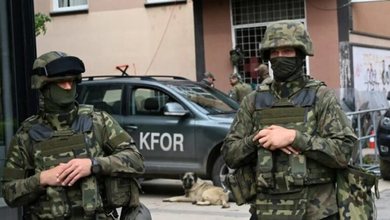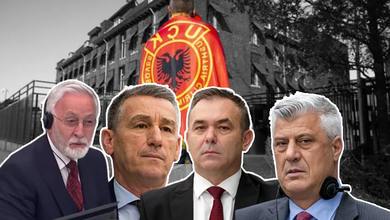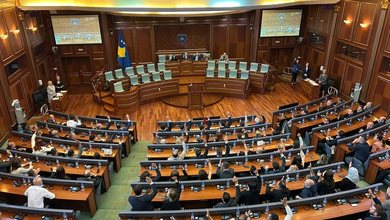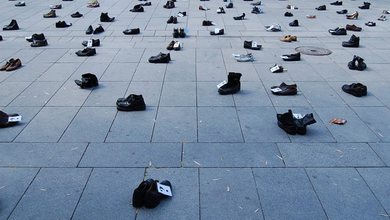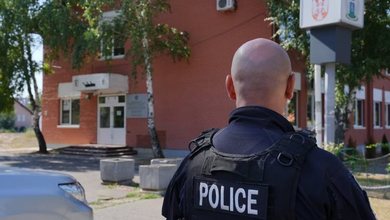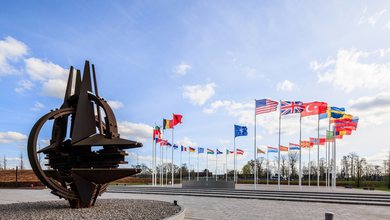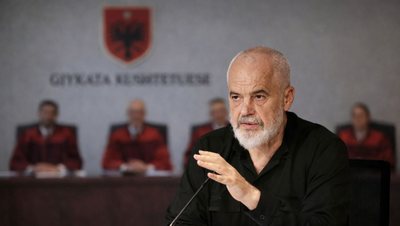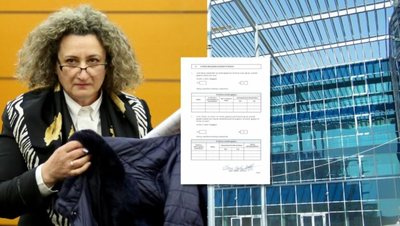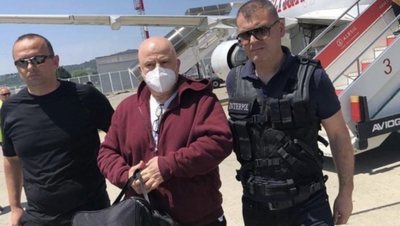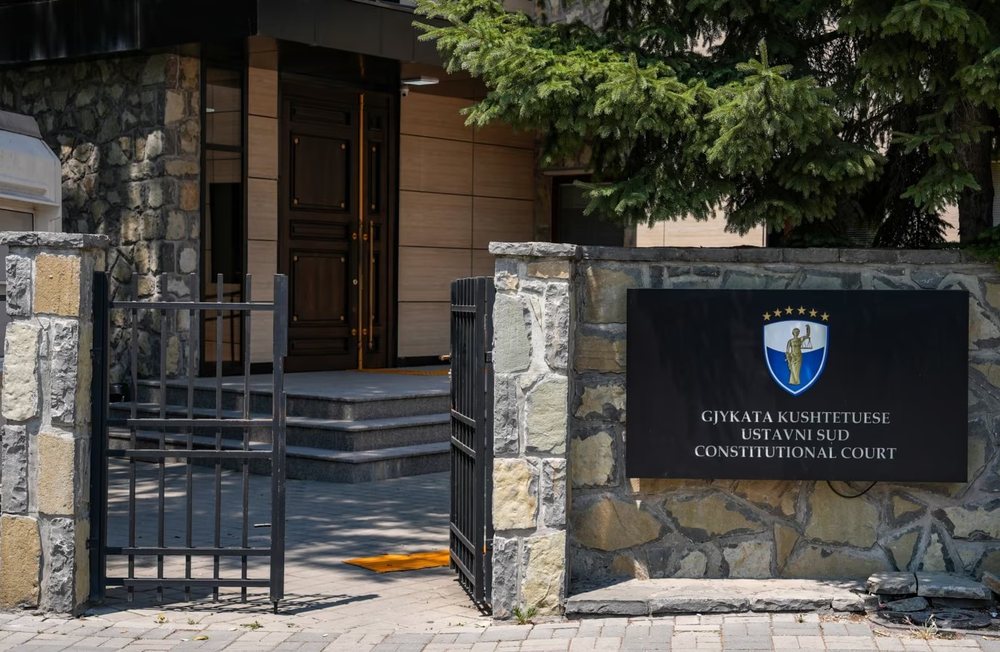
The Constitutional Court of Kosovo has unanimously imposed a temporary measure prohibiting MPs from taking any action, as well as prohibiting the development of any procedure for the formation of the new Government of Kosovo. The measure will be in effect from September 5 to September 30.
This measure was imposed by the Court ex officio and based on the request of the deputies of the Serbian List. The Constitutional Court said that it accepted the request for a temporary measure because it serves “the avoidance of risks or irreparable damage” and is in the “public interest”.
Radio Free Europe/Radio Liberty has contacted the Kosovo government in office for comment and is awaiting a response. Nine members of the Serbian List and Gorani member Adem Hoxha filed a petition with the Constitutional Court on August 30 regarding the vote for the Serbian deputy speaker in the Kosovo Assembly. The court stressed that – without assessing the allegations raised by the Serbian List about constitutional violations in the sessions of August 26 and 28 – “it is necessary to stop all further actions towards the election of the government and the continuation of the work of the Assembly”. It added that it had decided on the measure “in order not to violate the legal and democratic order in the Republic of Kosovo”.
The complaint by the Serbian List – which enjoys the support of official Belgrade – came after the new Speaker of the Assembly, Dimal Basha, put the candidates for deputy speakers of the Assembly from the non-Serb and Serb minority communities to a separate vote. The representative from the non-Serb communities, Emilija Rexhepi, was elected deputy speaker of the Assembly. However, the process stalled when it came to choosing the deputy speaker from the Serb community. The Serbian List, which has 9 of the 10 seats in the Assembly reserved for Serbs, insisted on nominating Slavko Simić.
However, he failed to secure the necessary 61 votes even after three rounds of voting. After the Serbian List refused to nominate anyone else for deputy speaker, Basha decided to draw lots, according to the Rules of Procedure of the Assembly, to draw another name from the Serb community. In addition to all the Serbian List deputies, Nenad Rašić from the Serbian party For Freedom, Justice and Survival, currently a minister in the government of Albin Kurti, was also nominated for this position. Rašić did not receive the necessary votes either.
After all Serb MPs voted three times and failed to be elected to the post of deputy speaker, Basha unilaterally closed the constitutive session and declared that the Assembly had been constituted. The Constitutional Court’s decision was published two days before the Vetëvendosje Movement – the winning party in the February 9 elections – is to hold its General Council, where it is expected to reconfirm Albin Kurti as prime minister-designate.
The LVV has insisted that the Assembly has been constituted, an assessment that has been disputed by other parliamentary parties. The leader of the Democratic League of Kosovo, Lumir Abdixhiku, criticized the Vetëvendosje Movement for “blocking an entire state, for an insignificant party position” in the Kosovo Assembly. He wrote on Facebook that Kosovo “will lose another 30 days” after the latest ruling by the country’s highest court. “Thirty more days without functional institutions, without laws being made, without projects being implemented. How is Serbia losing like this? We are blocked for an insignificant vice president, and they somehow lose?!” Abdixhiku wrote.
The constitutive session for the new legislature resulting from the February elections began on April 15. After months of gridlock, two rulings published by the Constitutional Court, and an interim measure, Dimal Basha from the LVV was elected Speaker of the Assembly on August 26. Then, through a joint vote, the deputy speakers from the Albanian parties were also elected: Albulena Haxhiu from the LVV, Vlora Çitaku from the Democratic Party of Kosovo, and Kujtim Shala from the Democratic League of Kosovo.
The political impasse came after none of the parties won enough votes to form their own institutions and in the absence of a political agreement. The LVV of the incumbent Prime Minister, Albin Kurti, won 48 seats in the February 9 elections. The PDK came in second with 24 seats, the LDK third with 20, followed by the Serbian List – the largest Serb party in Kosovo with 9, and the coalition between the Alliance for the Future of Kosovo and the Social Democratic Initiative, with 8. Another 11 seats are held by minorities. /REL


